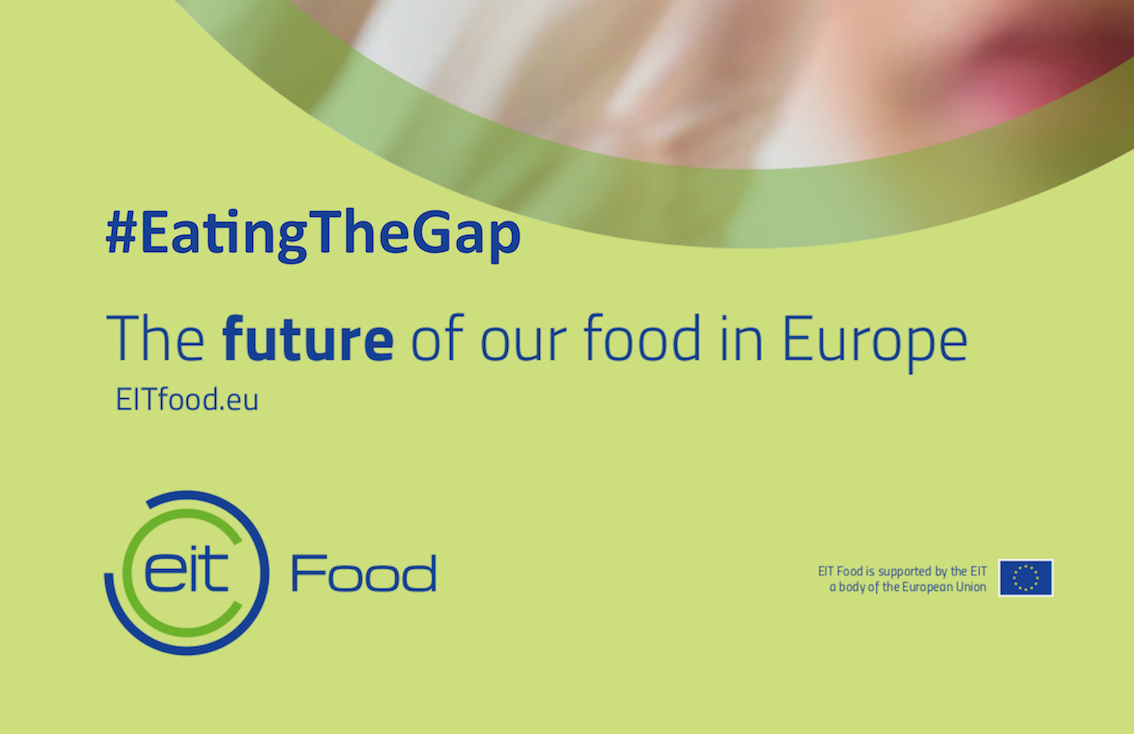 Nowadays people consume more foods that are high in energy, fats, free sugars and salt, and they do not consume enough fruits, vegetables and other dietary fibre foods such as whole grains.
Nowadays people consume more foods that are high in energy, fats, free sugars and salt, and they do not consume enough fruits, vegetables and other dietary fibre foods such as whole grains.
In fact, most diets today are lacking in many essential vitamins and minerals falling short of important nutrients such as fiber, potassium, vitamin D, and calcium, what creates a lack of nutrition. This lack of nutrition or malnutrition generates a range of conditions and non-communicable diseases (NCDs).
The NCDs include malnutrition (caused by too little food or eating the wrong kind of foods), obesity, cardiovascular diseases (CVDs), hypertension, diabetes mellitus type 2 and cancer amongst others.
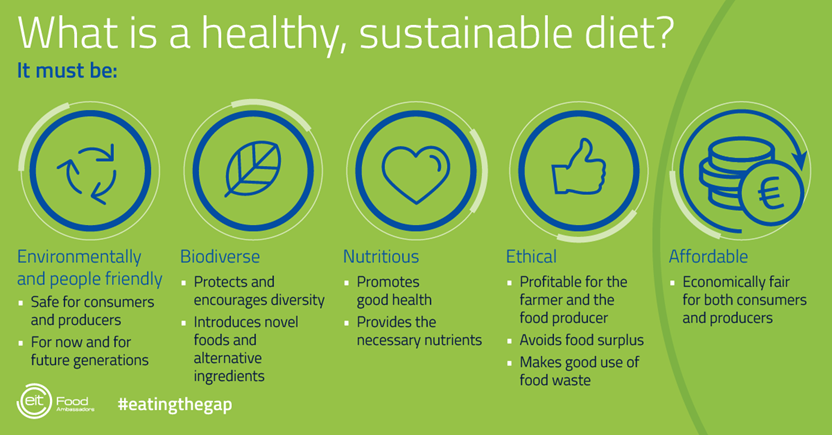 The Sustainable Development Goals (SDGs) of United Nations want to reduce, by 2030, by one-third premature mortality from NCDs through prevention and treatment and the promotion of mental health and wellbeing, SDG 3.
The Sustainable Development Goals (SDGs) of United Nations want to reduce, by 2030, by one-third premature mortality from NCDs through prevention and treatment and the promotion of mental health and wellbeing, SDG 3.
On the other hand, the food loss and food waste is alarming! An estimated one third of all food produced globally is either lost or wasted. In an age where almost one billion people go hungry, this is completely unacceptable!
Less food loss and food waste would lead to more efficient land use and better water resource management with positive impacts on climate change and livelihoods. The reduction of food loss and waste is critical to creating a Zero Hunger world and reaching the world’s SDGs, especially SDG 2 (End Hunger) and SDG 12 (Ensure sustainable consumption and production patterns).
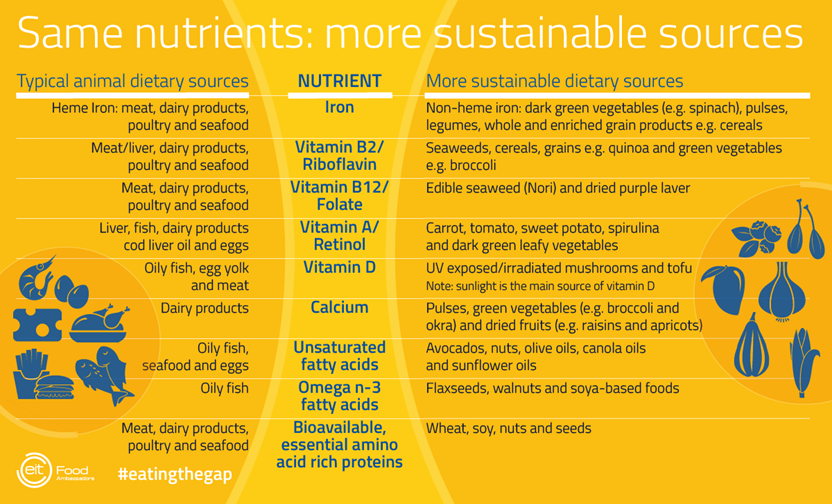 Not to forget about plastic pollution, if people don’t stop using single-use plastic items such as plastic bags and plastic bottles, there will be more plastic than fish in the world’s oceans by 2050 according to figures cited by the United Nations.
Not to forget about plastic pollution, if people don’t stop using single-use plastic items such as plastic bags and plastic bottles, there will be more plastic than fish in the world’s oceans by 2050 according to figures cited by the United Nations.
Considering this alarming situation of the world and inspired by the topics of Sustainability and Taste, the European Union Food Information Council (EUFIC), EIT Food, University of Reading, Döhler and FoodPairing organized in partnership, an event called “Eating the Gap” to help create a more sustainable and healthier world by bringing chefs and influencers together to discuss and experience food.
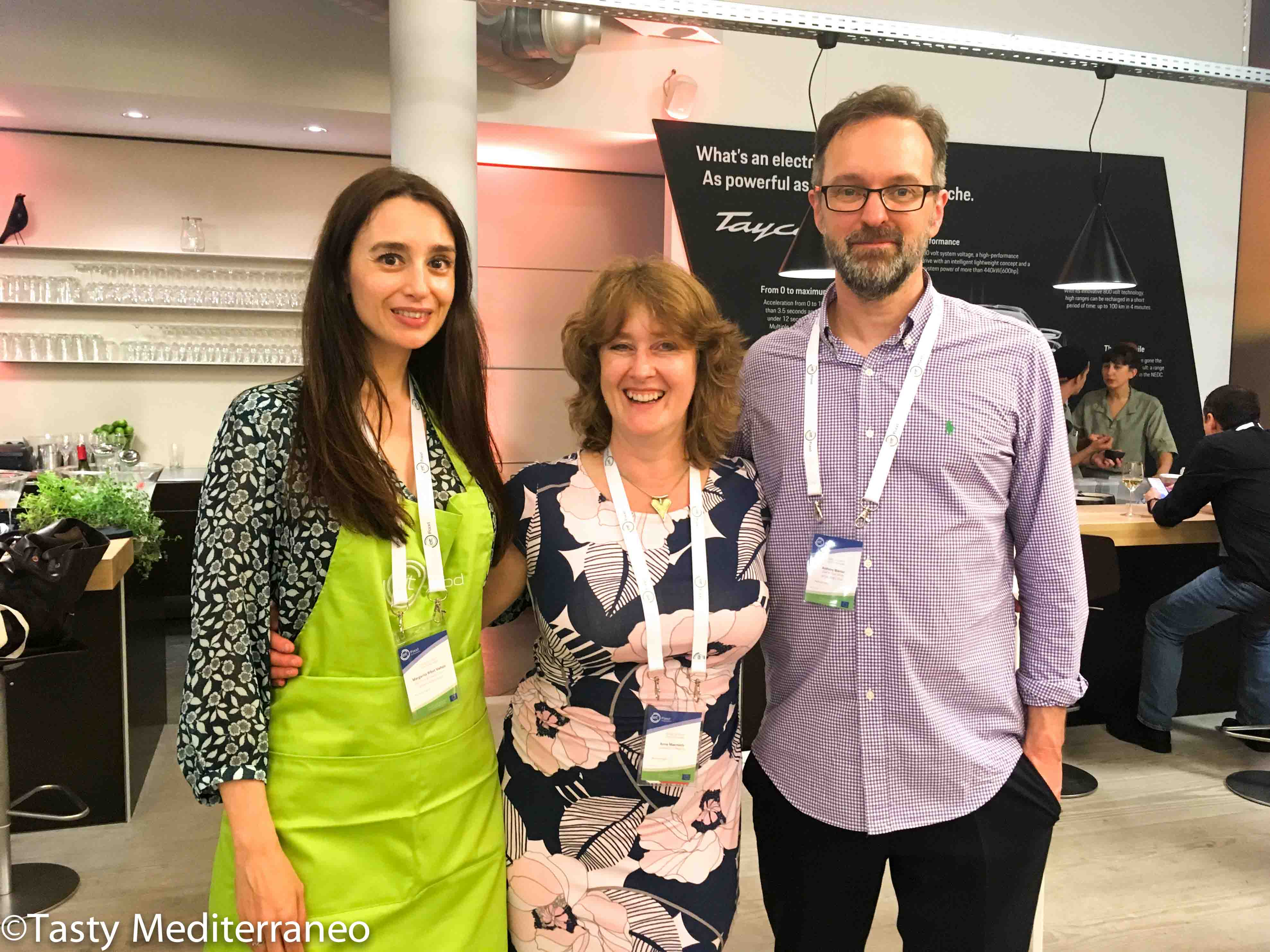 EUFIC wants to inspire people to make changes towards a healthier and more sustainable lifestyle, and in order to do so they offer accessible science based information on food and health.
EUFIC wants to inspire people to make changes towards a healthier and more sustainable lifestyle, and in order to do so they offer accessible science based information on food and health.
EIT Food is Europe’s leading food innovation initiative, with the aim of creating a sustainable and future-proof food sector that is set to support economically sustainable and innovative initiatives to improve our health, our environment, and our access to quality food.
EIT Food is part of the European Institute of Innovation and Technology (EIT) that is an EU body created by the European Union in 2008 to strengthen Europe’s ability to innovate.
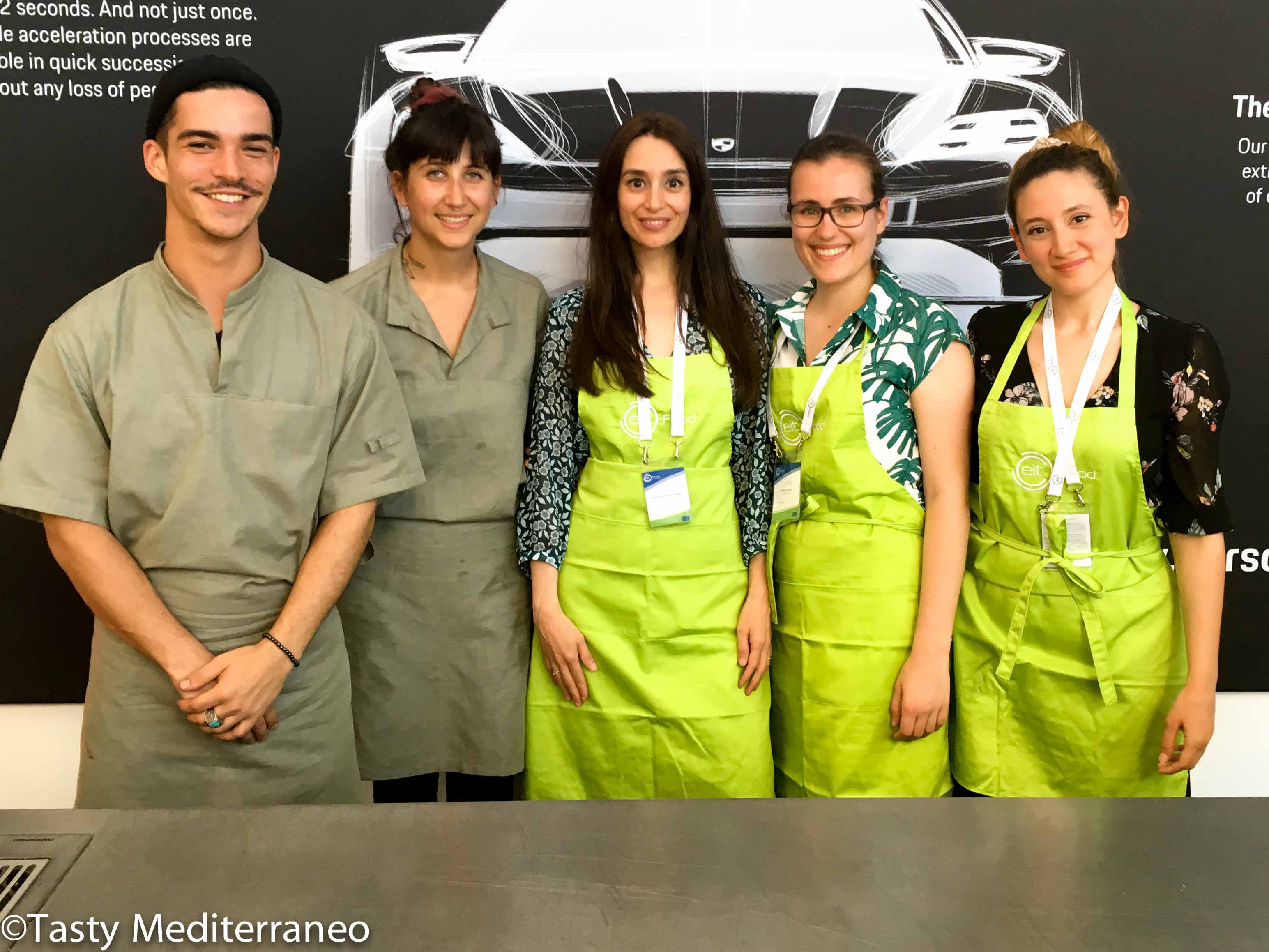 I am delighted to have been chosen as an EIT Food Ambassador. The EIT Food Ambassadors project provides a platform where accurate food and health information is provided to consumers. Through a series of engagements with key stakeholders i.e. communicators and food and health industries, issues of importance to consumers are discussed and disseminated via a unique website Food UNfolded (FUN), providing information to relevant issues on food and health.
I am delighted to have been chosen as an EIT Food Ambassador. The EIT Food Ambassadors project provides a platform where accurate food and health information is provided to consumers. Through a series of engagements with key stakeholders i.e. communicators and food and health industries, issues of importance to consumers are discussed and disseminated via a unique website Food UNfolded (FUN), providing information to relevant issues on food and health.
The first of these series of engagements was the “Food & Health Forum – Personalised Nutrition and Health” that I was invited to attend back in November 2018.
It was an honor for me to be one of the Key Food and Health Influencers of the European Union invited to #EatingtheGap, another event of these series of engagements. The “Eating the Gap” event took place in Brussels on June 24th. It was a cooking contest to experience how healthy and sustainable food is at hand, raising awareness on the need of changing the food system and our habits.
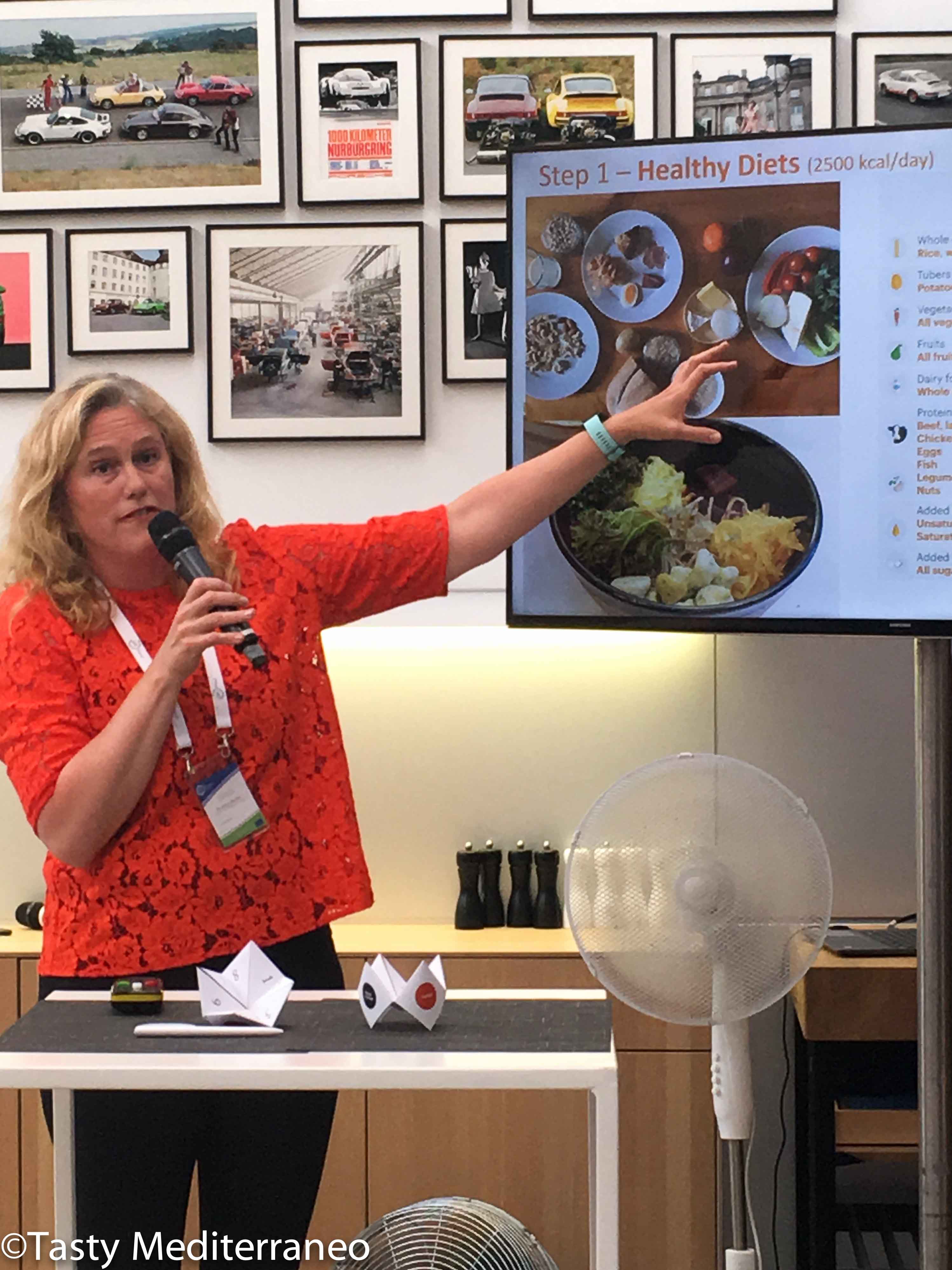 Amongst the speakers at #EatingtheGap I would like to highlight the intervention of Dr. Line Gordon, director of the Stockholm Resilience Centre and member of the board of directors of the EAT Foundation. She is one of the authors of the EAT-Lancet Commission, and part of its Executive Editorial Team.
Amongst the speakers at #EatingtheGap I would like to highlight the intervention of Dr. Line Gordon, director of the Stockholm Resilience Centre and member of the board of directors of the EAT Foundation. She is one of the authors of the EAT-Lancet Commission, and part of its Executive Editorial Team.
She talked about:
– How unhealthy and unsustainably produced food poses a global risk to people and the planet.
– The current dietary trends that combined with projected population growth to about 9 billion by 2050, will exacerbate risks to people and planet.
– The global burden of non-communicable diseases that is predicted to worsen.
– The effects of food production on greenhouse-gas emissions, nitrogen and phosphorus pollution, biodiversity loss, and water and land use that will reduce the stability of the Earth system.
– The need of a transformation to healthy diets from sustainable food systems in order to achieve the UN Sustainable Development Goals and the Paris Agreement.
– Healthy diets, that have an appropriate caloric intake and consist of a diversity of plant-based foods, low amounts of animal source foods, unsaturated rather than saturated fats, and small amounts of refined grains, highly processed foods, and added sugars.
– The need of a transformation into healthy diets by 2050, that will require substantial dietary shifts, including a greater than 50% reduction in global consumption of unhealthy foods, such as red meat and sugar, and a greater than 100% increase in consumption of healthy foods, such as nuts, fruits, vegetables, and legumes. The changes needed differ greatly by region.
– The need to achieve healthy diets from sustainable food systems for everyone, what will require substantial shifts towards healthy dietary patterns, large reductions in food losses and waste, and major improvements in food production practices. This universal goal for all humans is intertwined with all UN Sustainable Development Goals, and it is within reach but will require adoption of scientific targets by all sectors to stimulate a range of actions from individuals and organizations working in all sectors and at all scales.
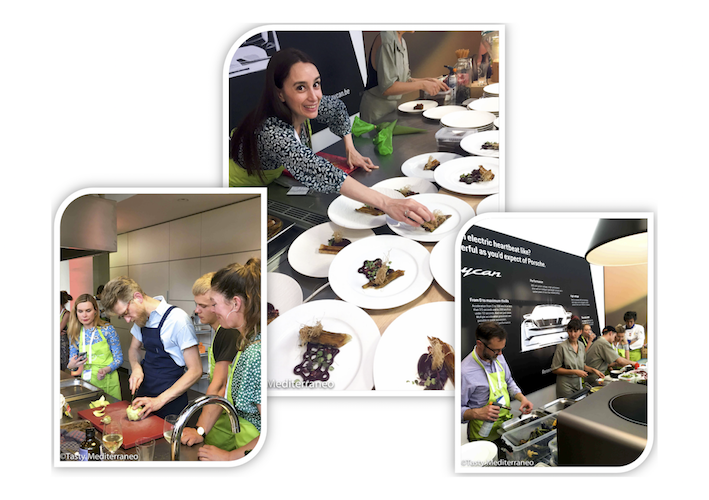 The chefs that we cooked with were:
The chefs that we cooked with were:
– Sebastian Sandor (from Heritage, Gent) who was the head chef at the two Michelin star restaurant Pastorale. At his new restaurant he keeps meat out of the kitchen and focus on vegetables and fish.
– Nicolas Decloedt (from HummusxHortense, Brussels) who was voted the best vegan restaurant of the world and awarded the best vegetable chef of 2019.
– Steven Desair (from Eatmosphere, Brussels). Steven is the founder of Eatmosphere, a social and ecological non-profit focused on raising positive awareness around food waste. Turning theory into practice, he cooks with food surplus from local farmers in Belgium.
We cooked tasty plant-based dishes, some of which you can see below.
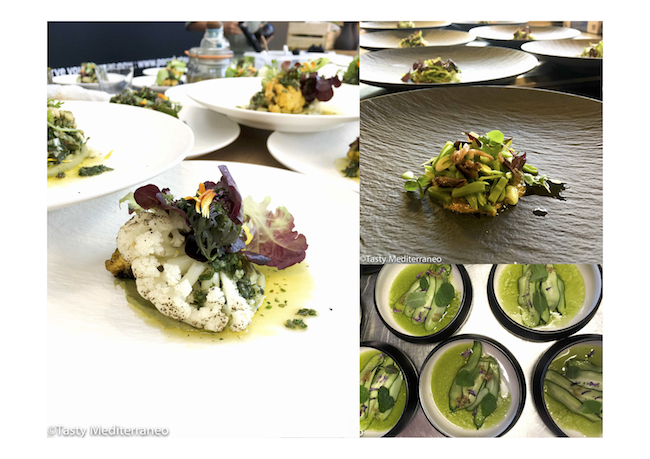 Among the food and health influencers that accompanied me at the ”Eating the Gap” event there were: Anthony Warner (a.k.a Angry Chef), Ben Coomber, Victoria Lozada (a.k.a. @nutritionisthenewblack), Elisabetta Pennaccioni (a.k.a. @ilgolosomangiarsano), Jutri Herman (a.k.a. @juutlovesfood), Magda Tymczyj (a.k.a. @oatmeal_stories), Marianne Grechko (a.k.a. @balance.nourish), Sara Kiyo (a.k.a. @shisodelicious), Sarah Lausch (a.k.a. @oneslicemore), Teffy Perk (a.k.a. @sprinkle_of_green), Marie Dorfschmidt (a.k.a. @therawberry) and others.
Among the food and health influencers that accompanied me at the ”Eating the Gap” event there were: Anthony Warner (a.k.a Angry Chef), Ben Coomber, Victoria Lozada (a.k.a. @nutritionisthenewblack), Elisabetta Pennaccioni (a.k.a. @ilgolosomangiarsano), Jutri Herman (a.k.a. @juutlovesfood), Magda Tymczyj (a.k.a. @oatmeal_stories), Marianne Grechko (a.k.a. @balance.nourish), Sara Kiyo (a.k.a. @shisodelicious), Sarah Lausch (a.k.a. @oneslicemore), Teffy Perk (a.k.a. @sprinkle_of_green), Marie Dorfschmidt (a.k.a. @therawberry) and others.
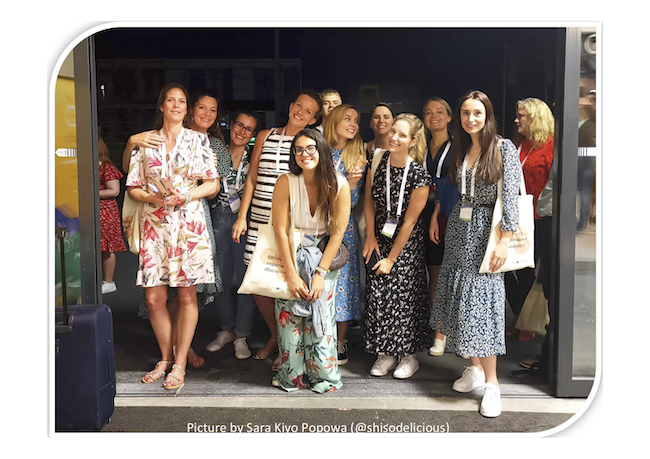 My team and I cooked with the Eatmosphere chefs a 3-D printed beetroot atomium with glazed leeks. The ingredients we used were surplus from local farmers and we even used the leeks roots that were fried and salted. Our dish was a clear proof that tasty, healthy and sustainable foods are possible!
My team and I cooked with the Eatmosphere chefs a 3-D printed beetroot atomium with glazed leeks. The ingredients we used were surplus from local farmers and we even used the leeks roots that were fried and salted. Our dish was a clear proof that tasty, healthy and sustainable foods are possible!
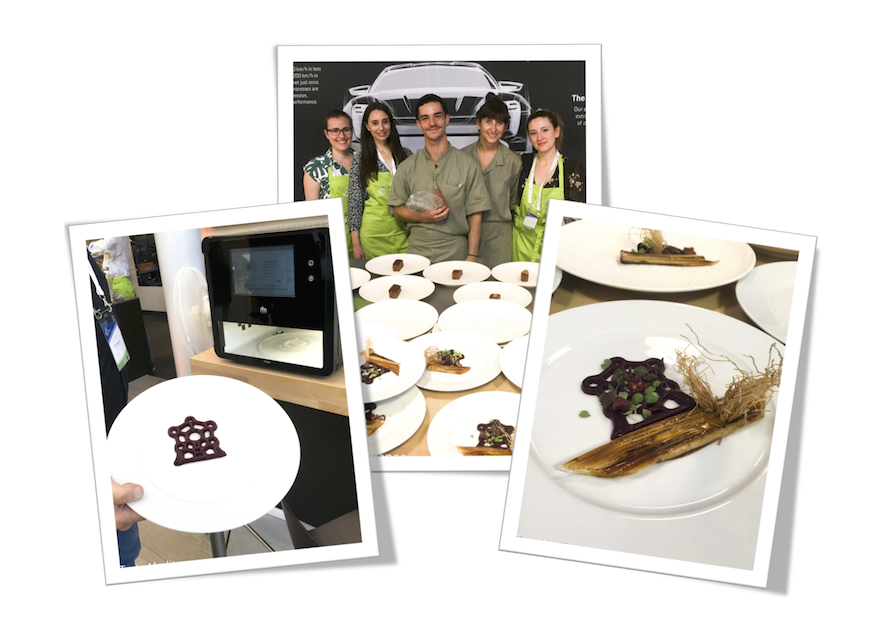 The Mediterranean Diet is one of the healthiest dietary patterns in the world, and it emphasizes eating primarily plant-based foods. As you can see in the below EIT Food infographic following a Mediterranean dietary pattern can reduce green house gas (GHG) possible emissions by 72%! Thus meaning that following the Mediterranean diet is both good for your health and for the planet!
The Mediterranean Diet is one of the healthiest dietary patterns in the world, and it emphasizes eating primarily plant-based foods. As you can see in the below EIT Food infographic following a Mediterranean dietary pattern can reduce green house gas (GHG) possible emissions by 72%! Thus meaning that following the Mediterranean diet is both good for your health and for the planet!
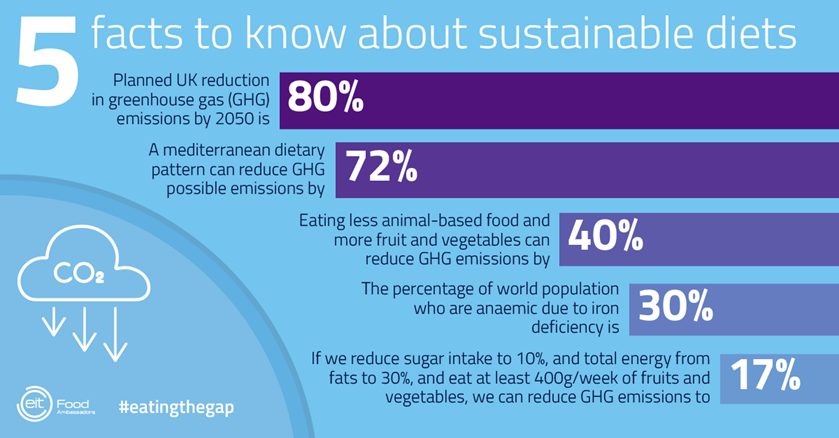
I encourage you to follow a healthy diet and lifestyle, such as the Mediterranean diet, to enjoy food without counting calories, to avoid food waste by being conscious to use all of your ingredients wisely and to save your leftovers, to be careful about portion size, expiration dates and reuse of meals as one of the easiest ways to save natural resources, and to have an active lifestyle.
I like to keep my family culinary traditions alive, and that is why I share with you my family’s Mediterranean diet recipes. You can find plenty of healthy vegetarian and vegan recipes from the Mediterranean cuisine on my blog.
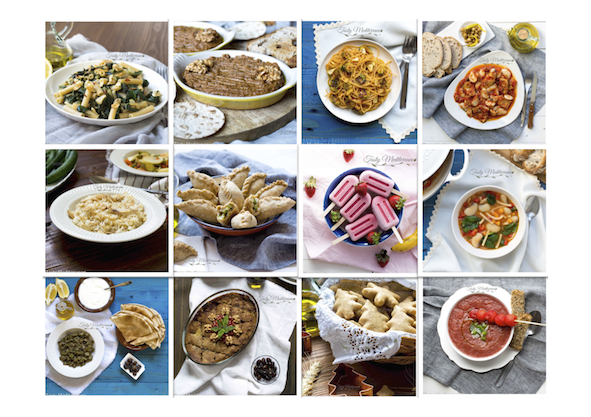
It sounds like a fabulous event! Sustainability is such an important matter, I’m delighted to see it’s getting more and more focus.
Keep up the great work, I love your healthy and sustainable recipes!
Hi Aoife, thank you very much for your kind words 🙂 It was a fabulous event indeed! Happy healthy cooking!